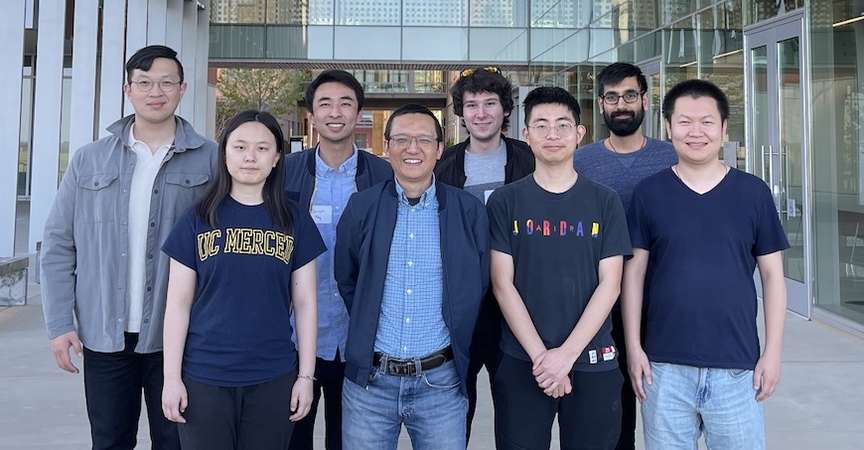
UC Merced Computer Science and Engineering Professor Xiaoyi Lu is leading a collaboration that secured a $4.35 million grant from the Department of Energy (DOE) to improve federated machine learning systems.
Lu is partnering with the University of Iowa and Argonne National Laboratory near Chicago to improve the understanding of scalable, federated, privacy-preserving machine learning. This project is one of five initiatives centered on distributed resilient systems in science that have collectively received $40 million in funding from the DOE.
"Scientific research is getting more complex and will need next-generation workflows as we move forward with larger data sets and new tools spread across the U.S.," Ceren Susut, DOE acting Associate Director of Science for Advanced Scientific Computing Research, said in a news release announcing the awards. "This program will explore how science can be conducted in this new environment - where tools and data are in multiple places but must be integrated in a high-performance fashion."
According to his abstract, Lu's proposal "aims to address the critical need for a scalable and resilient Federated Learning simulation and modeling system in the context of edge computing-related scientific research and exploration."
Federated Learning embodies a decentralized approach to training machine learning models, placing a strong emphasis on enhancing data privacy. In contrast to the traditional method that requires data to be transferred from client devices to global servers, Federated Learning harnesses raw data residing on edge devices to facilitate local model training. These edge devices, responsible for connecting various devices and facilitating network traffic between them, assume a pivotal role in this process.
"Federated learning is becoming an essential technique for machine learning on edge devices as the sheer amount of raw data generated by these devices requires real-time, effective data processing at the edge device ends," Lu wrote in his abstract. "The processed data carrying intelligent information must be encrypted for privacy protection, making federated learning the best solution for building a well-trained model across decentralized smart edge devices with secure and efficient data-sharing policies."
Lu and his partners propose a scalable and resilient federated learning simulation and modeling system. This system will empower users to harness privacy-preserving algorithms, introduce novel algorithms, and simulate as well as deploy a wide range of federated learning algorithms with privacy-preserving techniques.
"The proposed system brings forth substantial advantages for researchers and developers engaged in real-world federated learning systems," Lu explained. "It furnishes them with a valuable platform for conducting proof-of-concept implementations and performance validation, which are essential prerequisites before deploying and testing their machine learning models in real-world contexts. Additionally, the proposed system is poised to make a significant scientific impact on DOE-mission-based applications, including scientific machine learning and critical infrastructure, where concerns regarding data privacy hold significant weight."




 Public Information Officer
Public Information Officer

